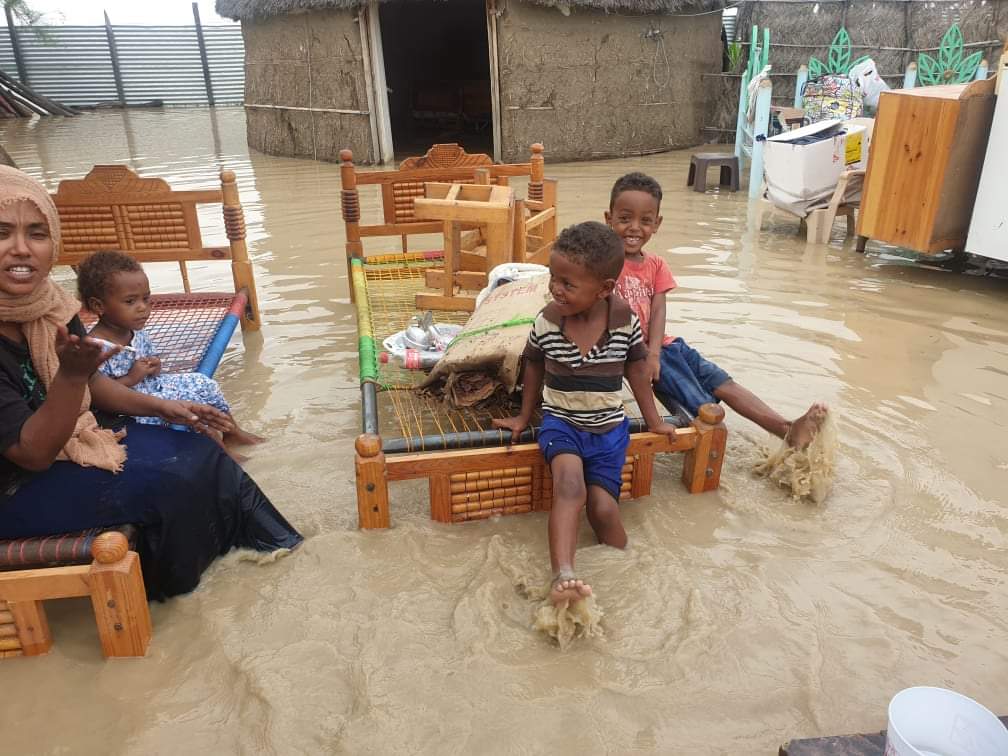
Abiy Ahmed’s proposal for a referendum in Western Tigray must be viewed with skepticism and criticism. His proposal is a thinly veiled attempt to annex the territory to the Amhara region, or a cynical maneuver aimed at diverting attention from his government’s human rights abuses.
There are several reasons why Abiy’s proposal for a referendum is weak.
No Legal Basis
First, there is no clear legal basis for the referendum. The Ethiopian constitution does not provide for referendums on the status of specific regions.
The Ethiopian constitution, adopted in 1995, outlines the structure and functioning of the federal government, establishing a system of regional autonomy. While it grants various rights to ethnic groups and nationalities, it does not explicitly mention referendums as a mechanism for determining regional status. This lack of explicit provisions has led to differing interpretations regarding the legality of referendums on regional autonomy.
Despite the absence of explicit provisions, referendums have been conducted in Ethiopia, with the most notable examples being the Sidama and Southwest Ethiopia People’s State referendums held in 2019 and 2021, respectively. These referendums, held under the auspices of the National Electoral Board of Ethiopia (NEBE), resulted in the creation of two new states within the Southern Nations, Nationalities, and Peoples’ Region (SNNPR).
Why the Previous Referendums Cannot Set a Precedent for Western Tigray
However, the case of Western Tigray is different from the previous referendums in several important ways. First, the people of Western Tigray are not seeking to secede from an already existing region, Tigray.
Second, the Ethiopian government has not recognized the existence of a distinct state in previous referendums, while it does recognize the existence of Tigray as an autonomous region. This difference in legal status makes it difficult to compare the two cases.
Third, the conflict in Western Tigray has been characterized by violence and human rights abuses. This difference in the political context makes it impossible that the previous referendums could be used as a model for resolving the conflict in Western Tigray.
In conclusion, the previous referendums cannot be directly applied to the case of Western Tigray. The different circumstances in Western Tigray make it impossible that a similar referendum could be held there.
Attempting to Legitimize Amhara Claims
Second, the Amhara region has a desire of territorial claims to Western Tigray and Abiy is legitimizing these claims by propounding a referendum.
Throughout history, the Tigrayan people have inhabited the lands of Western Tigray, a region steeped in rich cultural heritage and deeply connected to the core of Tigrayan identity. So, recent territorial claims by the Amhara regional government are unfounded.
Historical Roots of Tigrayan Identity
The Tigrayan people have a long and continuous history in Western Tigray, dating back to the ancient kingdom of Aksum. Archaeological evidence, linguistic similarities, and cultural traditions all point to the deep-rooted Tigrayan identity of this region.
Aksum, a powerful empire that dominated the region from the 1st to the 8th centuries AD, had its capital in present-day Tigray. The Aksumite civilization left an indelible mark on Western Tigray, shaping its language, religion, and cultural practices.
Linguistic Evidence of Tigrayan Identity
Tigrigna is spoken by the majority of the population in Western Tigray. This linguistic affinity is a clear indication of the region’s historical and cultural connection to Tigray.
Cultural Traditions that Reinforce Tigrayan Identity
Western Tigray shares a rich tapestry of cultural traditions with the rest of Tigray. These shared traditions, including music, dance, cuisine, and social customs, further solidify the region’s place within the Tigrayan identity.
Amhara Territorial Claims and the Question of Legitimacy
The Amhara region’s territorial claims to Western Tigray are rooted in an unfounded historical narrative that has been successfully challenged by Tigrayan scholars and historians. The claims by Amhara lack strong historical evidence and are an attempt to expand Amhara territory at the expense of the Tigrayan people.
Abiy Ahmed’s referendum on Western Tigray’s is an attempt to legitimize these claims and undermine the Tigrayan identity of the zone.
Not Feasible for a True Referendum
In addition to these legal and political concerns, there are also major concerns about the practical feasibility of a true r0eferendum in Western Tigray. There is no clear plan for how the referendum would be conducted or how the results would be implemented. Moreover, the region is heavily armed, and there is a risk that the referendum could be marred by violence.
Given these concerns, Abiy’s proposal for a referendum in Western Tigray is weak and ill-founded. The proposal appears to be more about political posturing and distraction than about genuine democratic self-determination.
Rather, Abiy has another agenda when he speaks of referendum in Western Tigray:
To consolidate his power by portraying himself as a strong leader who is willing to take tough decisions.
Abiy’s proposal for a referendum in Western Tigray is an attempt to project strength and decisiveness in the face of mounting criticism of his handling of the genocidal war in Tigray. By appearing to be willing to take a tough stance on the issue, Abiy hopes to shore up support from his own supporters and silence his critics.
To deflect criticism of his government’s handling of the genocide in Tigray.
The genocide against Tigray has been a major humanitarian crisis, with millions of people displaced and thousands killed. The Ethiopian government is responsible for genocide in the region. By proposing a referendum in Western Tigray, Abiy is attempting to divert attention from these allegations and portray himself as a leader who is committed to peace and democracy.
To win international support by presenting himself as a champion of democracy and peace.
Abiy has been a popular figure on the international stage, and he has been praised for his efforts to promote peace and democracy in Ethiopia. However, his recent human rights abuses have raised concerns about his commitment to these principles. By proposing a referendum in Western Tigray, Abiy is attempting to regain the support of the international community by presenting himself as a leader who is still committed to democratic principles.
Against this backdrop, the proposal for a referendum in Western Tigray is a dangerous gamble. It could further inflame tensions and lead to renewed violence. Only time will tell whether Abiy’s proposal for a referendum in Western Tigray will succeed. However, it is clear that the proposal is fraught with danger.




